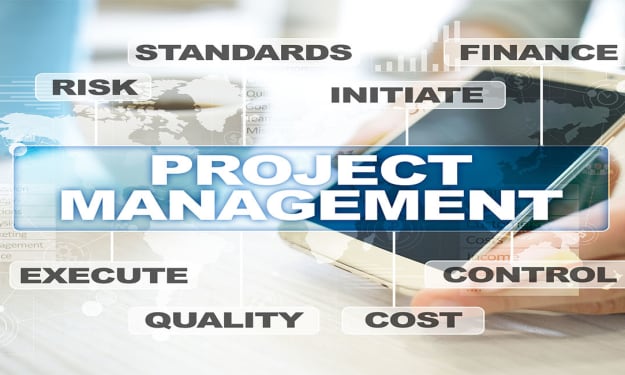What are Educational Assessments?
Educational assessments are one of the various methods and approaches which help the teacher to do this. It is a crucial aspect of learning and offers useful feedback that helps improve pedagogy.

A psychological assessment makes use of a variety of techniques to help in assessing the personality and capabilities of a person. Psychologists are the professionals who are trained expertly to conduct and interpret such psychological tests.
Educational assessments are one example of these types of tests. Many parents are worried that their child might be struggling in the classroom but may be unaware of what factors might be causing this.
Examples of learning difficulties are when a child finds it tough to learn new information that can begin to impact their achievements at school.
All children go through the learning process, and a teacher must keep track of how well students grasp the various subject matters that are being discussed. Educational assessments are one of the various methods and approaches which help the teacher to do this. It is a crucial aspect of learning and offers useful feedback that helps improve pedagogy.
Definition
A synonym for educational evaluation, educational assessment is a systematic process for finding out the beliefs, skills, experience, and knowledge of a student through the use of empirical data. It is a continual process, and its results aid in improving learning and teaching experiences in the classroom.
Forms of education assessments
Nearly all educational environments today make use of some form of assessments that are part of psychological assessments. No matter whether they are final exams, end-of-chapter quizzes or big-scale standardised testing like NAPLAN, they are quite common.
Educational assessments can take many forms, such as:
- Performance-based activities or formal tests
- Online administered or paper and pencil tests
- Objective (needing a single right answer) or subjective (essay) tests
- Formative (during the course of the project) or summative (end of the project) tests.
The common factor of all such tests is that they measure the performance of learners relative to previously defined goals, that are typically defined as learning outcomes or objectives.
Types of assessments
Educational assessments come in various kinds. Some are determined by the educational system, while others are at the discretion of teachers. No matter what, they fall under the following broad categories:
- Formative assessment
They are used all through the educational process with the objective of identifying problem areas and enhancing learning & teaching. The goal is to monitor the learning of students to offer feedback. Such assessments help to identify formative gaps in a student’s instruction. This way, teachers know what to focus on in the further expansion of lessons.
- Summative assessment
They are utilised at the end of a learning block as a final test of the knowledge of students. They also measure the effectiveness of learning, long-term benefits, and reactions to instruction.
- Standardised assessments
Synonymous with standardised tests, these are assessments that are given and scored in a consistent way, typically across a big group of students. They help discover why a child might be accelerating, succeeding, or struggling in specific aspects of their grade level standards.
- Performance-based assessment
They require students to perform a specific task, like submitting a presentation or writing assignment. They offer proof of the application of knowledge and skills learnt.
- Criterion versus norm-referenced assessment
Referenced assessments are provided with the aim of comparing the results of students to a specific standard. In the case of norm-referenced tests, the standard used is based on a large group of students whose score forms the norm.
Tests that are criterion-referenced also compare the results of individual students to a standard, but the standard is based on the curriculum and is mostly designed as a cut-off for defining proficiency.
- Alternative assessments
Such assessments are utilised to gauge what students cannot and can do, as per what they already know. These might include essays, observations, interviews, exhibitions, journals, portfolios, peer and self-evaluation, project work etc.
- High stakes assessment
As evident by the name, this form of assessment is a mode of evaluation that is critical for students. In sum, the results of such assessments are utilised to make critical decisions about learners' progress. The assessment has significant consequences for students. If they pass the test, it implies that the student is making good progress so they may be promoted to the next class or will gain a new certificate. Similarly, failing such tests can prevent a student from gaining a certificate or earning a licence to practise.
Due to the different results and associated outcomes that are linked to high-stakes tests, students are typically motivated to work hard to secure the best grades possible. The main difference between a low-stake and a high-stake test is the functionality. Though a low-stakes test will measure academic accomplishment, inform adjustments in instruction and measure academic achievement, high stake tests are utilised for scoring learning outcomes.
In summary, educational assessments are much more than ordinary tests. They are powerful tools of learning for students and tools of evaluation for educators and psychologists. They provide a method to track if a student is struggling and offer remediation.
About the Creator
Amara Gomez
I am skilled in go-to-market strategy, product and consumer insights, messaging, demand generation, digital marketing (PPC, SEO, social, email, website, content, etc...) product marketing, customer advocacy, and content development.






Comments (1)
Well-researched work on assessment. My work is on classroom assessment. Please comment after reading.